
Judge Songhai Armstead presenting information about JCOD. Photo by Brenda Verano
Former Judge Songhai Armstead (ret.), director of one of Los Angeles County’s newest departments, the L.A. County Justice, Care, and Opportunities Department (JCOD), is on a mission to bring more awareness to the County mission she is leading.
Last week, Latino Media Collaborative, the parent organization of CALÒ News, hosted a media roundtable featuring the director of JCOD to learn about the department's work.
“I think it is important to be transparent so that we show the community the work that we are doing and that we advertise what we are doing,” Armstead told CALÒ News. “[JCOD] does not serve anyone at all if we are not making it available to the people that need it more. Access to this information is where we need to go.”
JCOD was established in November 2022 with the goal and mission to support the County’s adults who have been justice-impacted, imprisoned or transitioning out of incarceration.
Stabilization, rehabilitation and reentry into society are just some of the programs overseen by JCOD.
The roundtable aimed to bring together L.A.’s multi-ethnic and multilingual newsrooms to learn more about JCOD and the work done since the department was created.

La Nueva Voz was one of the news outlets atThursday’s event. Photo by Brenda Verano
At Thursday’s roundtable, Armstead explained that JCOD is a product of the Board of Supervisors’ Care First vision and Measure J, which was approved by voters in 2020, setting aside at least 10% of the locally generated, unrestricted revenues of L.A. County to be directed to community investment and alternatives to incarceration.
According to the L.A. Board of Supervisors’s motion to establish JCOD, at that time the County was having a hard time getting the resources and direct aid that justice-impacted people needed.
“Our decentralized administration of services and programs for those who are justice-impacted and/or vulnerable to justice system involvement has resulted in a fractured and siloed bureaucracy, and worse, a disjointed and gap-filled continuum of care for this population,” the board stated in 2022. In the Board of Supervisors’ motion directing the County to create JCOD, it noted that “if the County truly intends to fulfill the Care First, Jails Last mission, it is imperative that this board take steps to break down these long-standing silos” and provides coordinated programs and services to individuals and communities impacted by the criminal legal system.
JCOD was created, to not only address deficiencies in the existing County infrastructure but also oversee services such as mental health support, substance use treatment, reentry and pretrial services to people needing them in real-time.
“We are a fairly new program," Armstead said to attendees at the roundtable.
Armstead was sworn in as the inaugural director of JCOD at L.A. County’s Kenneth Hahn Hall of Administration last October. “I am deeply honored and profoundly humbled that the Board of Supervisors have entrusted me with first the building of and now the leading of the newest department for Los Angeles County,” she proclaimed.
Armstead was appointed as a Superior Court judge by Governor Jerry Brown in 2015, during which she served for five years before stepping down to lead the County’s Office of Alternatives to Incarceration (ATI), which is now part of JCOD.
She graduated from the University of Nevada, Reno. Armstead earned her law degree at the UCLA School of Law, where she was the first-ever African American female student body president. She was also part of the foster care system.

The roundtable brought together L.A.’s multi-ethnic and multilingual newsrooms to learn more about JCOD. Photo by Brenda Verano
At the roundtable, Armstead spoke about the way the JCOD call center (833) 522-5263, or 1-833-LAC-JCOD) operates. “If you call us and say, ‘Hey, I have just been released [from prison], I don't have anywhere to go,’ we will send you a car to pick you up, and we will take you to emergency housing and connect you to a care manager. That person will help with job training, getting you identification, getting you into drug treatment and getting you mental health counseling,” she said. “They will walk with that person along their journey to help them get back on their feet.”
When asked how people imprisoned or in jail are supposed to know about JCOD’s services, Armstead said that courts and law enforcement agencies have JCOD’s information and posters with the organization's call center number. At times, JCOD’s staff and community-based organization providers also table outside of jails, and law enforcement agencies to make sure the resources are getting to the right people in need.
One of the additional areas of focus within JCOD is the empowerment of community-based organizations that serve vulnerable populations via training. Through the launch of L.A. County’s Care First Community Investment (CFCI) Care Grant program, JCOD offers grants to organizations that are already equipped with innovative programs and innovations that serve under-resourced communities.
Organizations that tackle and foster housing equity, youth development, community farms, feeding the unhoused, mentorship programs and others are encouraged to apply for the grants.
According to Armstead, in the last round of these grants, JCOD offered an investment of $175 million in grant money to 163 community grantees.
One of the latest resources launched by JCOD in June 2024 is the first independent pretrial services pilot, which uses court-based navigators to help connect individuals to community services and care management, aiming to reduce failures to appear and re-arrests for those released during pretrial.
Navigators conduct quick needs screenings for Justice-Impacted Individuals (JIIs), both before and after arraignment, and facilitate warm handoffs to service providers.
Screenings can be requested by out-of-custody JIIs, their defense counsel and their loved ones. Court-based navigators can then offer same-day services such as short-term housing, access to transportation within L.A. County, court hearing reminders, critical resources and supportive services.
“Getting the word out is why we are here, getting people to know that we exist,” Armstead replied when asked about the organization’s biggest challenges to this day.
For more information about JCOD and the services it provides, you can visit: https://jcod.lacounty.gov/.



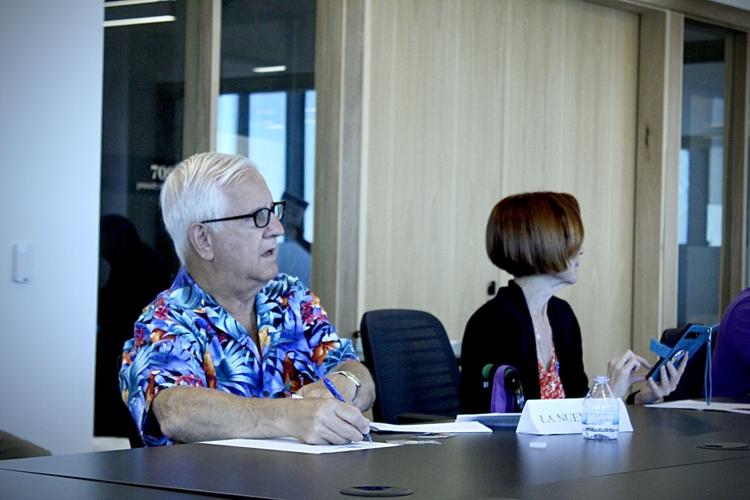
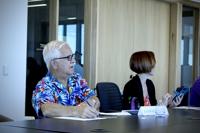
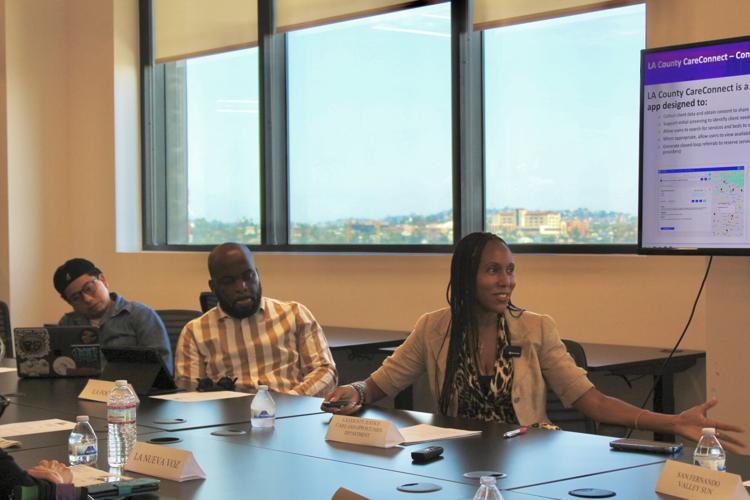


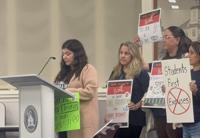





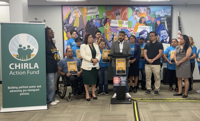
(0) comments
Welcome to the discussion.
Log In
Keep it Clean. Please avoid obscene, vulgar, lewd, racist or sexually-oriented language.
PLEASE TURN OFF YOUR CAPS LOCK.
Don't Threaten. Threats of harming another person will not be tolerated.
Be Truthful. Don't knowingly lie about anyone or anything.
Be Nice. No racism, sexism or any sort of -ism that is degrading to another person.
Be Proactive. Use the 'Report' link on each comment to let us know of abusive posts.
Share with Us. We'd love to hear eyewitness accounts, the history behind an article.